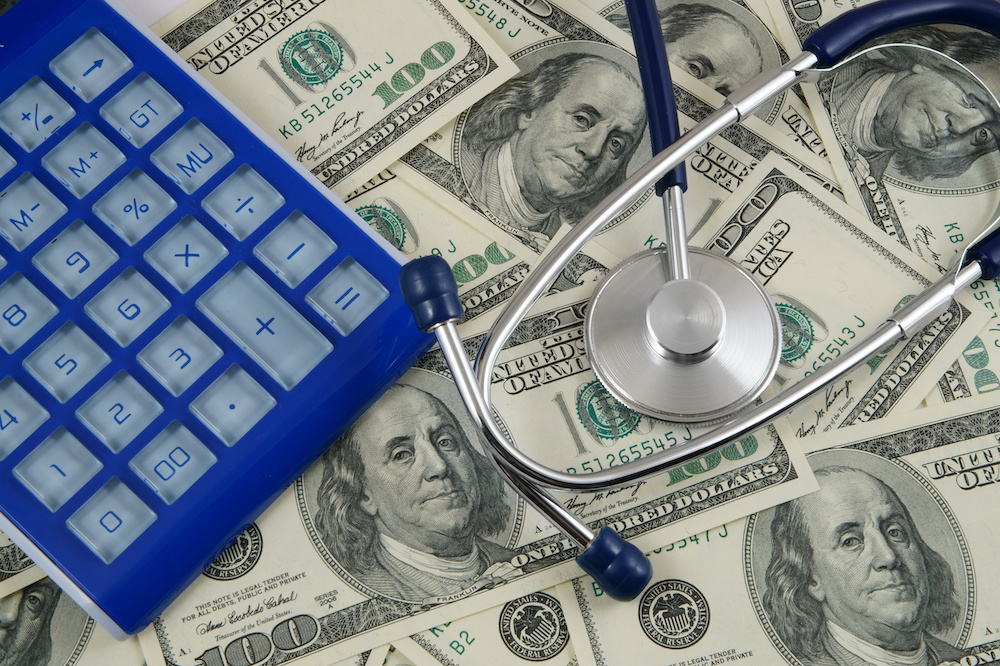If you are struggling with debt and considering bankruptcy, you probably have questions. You have every right to get clear answers to each of your questions before moving forward with the bankruptcy process. Below, we have provided answers to some of the most frequently asked questions.
What is bankruptcy?
Bankruptcy is the legal method for a debtor to discharge or relieve debt. Bankruptcy is a way for people or businesses that owe more money than they can pay to either work out a plan to repay the money over time or to have their debt wiped out. While no debtor is guaranteed a total discharge, most debtors who file for bankruptcy are given such relief.
One of the primary purposes of the bankruptcy code is to relieve the honest debtor from the weight of oppressive indebtedness and to provide the debtor with a fresh start. A bankruptcy case is initiated by the filing of a petition for relief. Once the petition is filed, an automatic stay goes into effect preventing creditors from taking any collection action against the debtor, including harassing phone calls, collection letters, lawsuits and wage garnishments.
Who can file for bankruptcy?
Any person, partnership or corporation may file bankruptcy, although Chapter 13 bankruptcy is limited to individual debtors.
What debts may be discharged?
In a Chapter 7 bankruptcy, most debts can be eliminated, including credit cards, medical bills, personal loans, repossession debt and most judgments. The types of debts that cannot be eliminated in Chapter 7 include student loans, child support, fraud, certain taxes and certain debts arising from personal injury to others.
Are there some debts that cannot be eliminated in bankruptcy?
Although most debts are able to be discharged in bankruptcy, there are a few that will survive. Some of the most common nondischargeable debts are:
- Student loans (regardless of whether they are government or private loans)
- Alimony, spousal maintenance and child support
- Debts arising from fraud or other wrongful conduct
- Trust fund taxes (i.e., sales tax, payroll taxes)
- Some income taxes
- Debts (other than support) arising out of a divorce or property settlement agreement (nondischargeable in Chapter 7 only).
Will I lose any property if I file for bankruptcy?
For the vast majority of people who file for bankruptcy, the answer is no. Although Chapter 7 bankruptcy is technically a “liquidation” proceeding, the availability of state and federal exemptions in Indiana and Kentucky allow most people to retain all or most of their property during the bankruptcy process.
If you have more property than the law allows in exemptions, then Chapter 13 may be an option. Automatic stays enforced during a bankruptcy case can also stop things like car repossession as well.
Will I lose my home if I file for bankruptcy?
Every case is different. In some situations, loss of the home is a possibility. However, this is rare, and most people are able to keep their house.
Learn more about keeping a home in bankruptcy.
Will I lose my car if I file for bankruptcy?
Probably not. Each state has laws that determine which items or property is exempt from being taken away. Most people who file bankruptcy do not lose those items, but it depends on their value and the exemptions allowed in the state in which you file bankruptcy.
Will I lose my retirement account if I file for bankruptcy?
No. Virtually all retirement accounts are exempt, regardless of value, which means that the bankruptcy trustee does not have a right to liquidate them on behalf of your creditors.
Some states, like Indiana, limit the exemption to retirement accounts that are funded with pretax dollars.
Will filing for bankruptcy affect my credit rating?
Yes. However, most individuals are able to rebuild their credit within a few years. If you are currently contemplating bankruptcy, then it is likely that your current credit rating has already been affected. A discharge of your current debt may provide the opportunity to rebuild your credit with steady, regular payments on a new account.
How long will bankruptcy stay on my credit report?
The Fair Credit Report Act, 6 U.S.C. Section 605, is the law that controls credit reporting agencies. The law states that credit reporting agencies may not report a bankruptcy case on a person’s credit report after 10 years from the date the bankruptcy case is filed. Other bad credit information is removed after seven years.
The larger credit reporting agencies belong to an organization called the Associated Credit Bureaus. The policy of the Associated Credit Bureaus is to remove Chapter 13 cases from the credit report after seven years to encourage debtors to file under this chapter.
Will bankruptcy stop creditors from calling?
As soon as you file for bankruptcy, creditors must stop calling.
Learn more about how bankruptcy stops creditor harassment.
How do I know what chapter of bankruptcy to file?
This depends on several factors, including what type of debts you have, your assets, your income level and whether you are behind on your payments to secured creditors.
Learn more about determining which chapter of bankruptcy to file.
If I am married, does my spouse have to file with me?
No. Filing bankruptcy jointly is not required simply because you are married. However, only the person filing the bankruptcy will get the protection of the automatic stay. So if you and your spouse have significant joint debts, it probably makes sense for both to file.
Learn more about filing bankruptcy when married.
Can my bankruptcy be denied?
Although it is quite rare, there are some situations where your case can be dismissed or your discharge denied.
One way that your case can be thrown out is if you provide false or misleading information on your bankruptcy schedules. Examples of that would be a failure to list valuable assets such as real estate, automobiles, inheritances or personal injury claims.
Transferring assets out of your name shortly before filing bankruptcy and excessive “running up of debt,” two common mistakes made prior to filing for bankruptcy, can also result in your case being dismissed or your discharge denied.
Your bankruptcy can also be dismissed as an “abuse” if you make too much money. The bankruptcy code has a means test for determining whether someone filing bankruptcy will be allowed to file Chapter 7. This means test is applicable to anyone filing bankruptcy whose debts are primarily consumer debts.
Traditional and nontraditional households alike must take the means test to determine bankruptcy eligibility.
Will filing bankruptcy stop a wage garnishment?
Other than child support payments, the answer is yes.
Once your case is filed, creditors are prohibited from taking any legal action against you to collect debt, including wage garnishments. In fact, once they receive notice of the bankruptcy, creditors and their attorneys have an affirmative duty to take action to stop any legal action that began before the bankruptcy, including wage garnishments.
If a creditor has garnished more than $600 within 90 days prior to bankruptcy, you may even be able to get some of that money back after you file.
Will bankruptcy help me with my taxes?
It might. Income taxes that are over three years old may in some circumstances be able to be discharged in Chapter 7 bankruptcy. If they are not dischargeable in Chapter 7, they can probably be restructured in Chapter 13. There are very specific rules that address taxes in bankruptcy; so if you have a tax issue, consult with a bankruptcy attorney from Schwartz Bankruptcy Law Center to find out what your rights are.
If you have older taxes that may be subject to discharge, it will be very useful to obtain an “account transcript” from the IRS for the years in question.
Does filing bankruptcy result in increased taxes?
No. For most individuals, there is absolutely no tax consequence from filing bankruptcy.
The Internal Revenue Code specifically excludes the discharge of debt in bankruptcy from its definition of cancellation of debt income. This is a big benefit of filing bankruptcy. As opposed to working with a debt settlement company, that may ruin your credit further because they can cause you to have huge tax liabilities for debt forgiveness.
In the rare case where the trustee has nonexempt property to sell, the debtor’s tax attributes, such as carryforward losses, will pass to the bankruptcy estate and may be used by the trustee in the administration of the estate. If you have a complex tax situation, you should seek advice from a tax adviser before filing for bankruptcy.
Do I have to list all of my creditors or can I leave some out?
When you file for bankruptcy, you must list all of your debts, even those you still intend to pay. There is nothing, however, that says you can’t pay a debt just because you have listed it in the bankruptcy. This is called “reaffirming.”
In fact, if a debt is secured by some property that you wish to keep, then you may have to reaffirm the debt in order to avoid having the creditor repossess the collateral. You may also wish to reaffirm debts that are co-signed in order to protect the co-signor from collection. If a debt is not co-signed and there is collateral securing it, then it generally does not make sense to pay it if it can be discharged.
Will the trustee come to my house?
This almost never happens. The trustee generally relies on the information listed in your schedules.
However, the trustee will sometimes check land and motor vehicle records to make sure that you do not have any property in your name that is not listed in the schedules. The trustee may also review your homeowners policy to see if there are any assets, like jewelry, that are separately insured but not listed on your bankruptcy schedules.
Will I need to go to court?
Yes. You will need to attend what is called a 341 Meeting of Creditors, which your attorney will attend with you. At this meeting, you will be examined by a trustee and any creditors, which have questions. However, creditors rarely attend these meetings.
What happens when I go to court?
The prospect of going to court can be very stressful for people filing bankruptcy. Being prepared and knowing what to expect can be helpful.
Learn more about going to court for bankruptcy.
How many times can one file for bankruptcy?
Being struck by overwhelming debt is bad enough. It is even worse when it happens again. Thankfully, there may be the opportunity to file bankruptcy again.
Learn more about repeat bankruptcy filings.
How much does it cost to file for bankruptcy?
The court filing fee for Chapter 7 is $335, Chapter 13 is $310 and in most cases, this fee must be paid upfront to the bankruptcy court. In the case of an emergency, a Chapter 13 petition can sometimes be filed for less than the full amount upfront. The amount of your legal fees and payment arrangements are based upon the facts of your particular case.
How do I get started with filing bankruptcy?
If you are considering filing for bankruptcy, there are several things you should do:
- Gather all of your bills, collection letters and other evidence of debt.
- Prepare a household budget for yourself.
- Obtain copies of your pay stubs for the last six months.
- Obtain copies of your tax returns for the last two years. If you cannot locate them, order a transcript from the IRS.
- Obtain copies of your bank statements for the past six months.
- Obtain copies of deeds, mortgages and titles to property you own.
- Stop using your credit cards.
- Obtain a credit report from www.annualcreditreport.com. This is a government site that allows you to obtain all three credit reports for free once per year. This is not to be confused with freecreditreport.com, which is not very useful.




